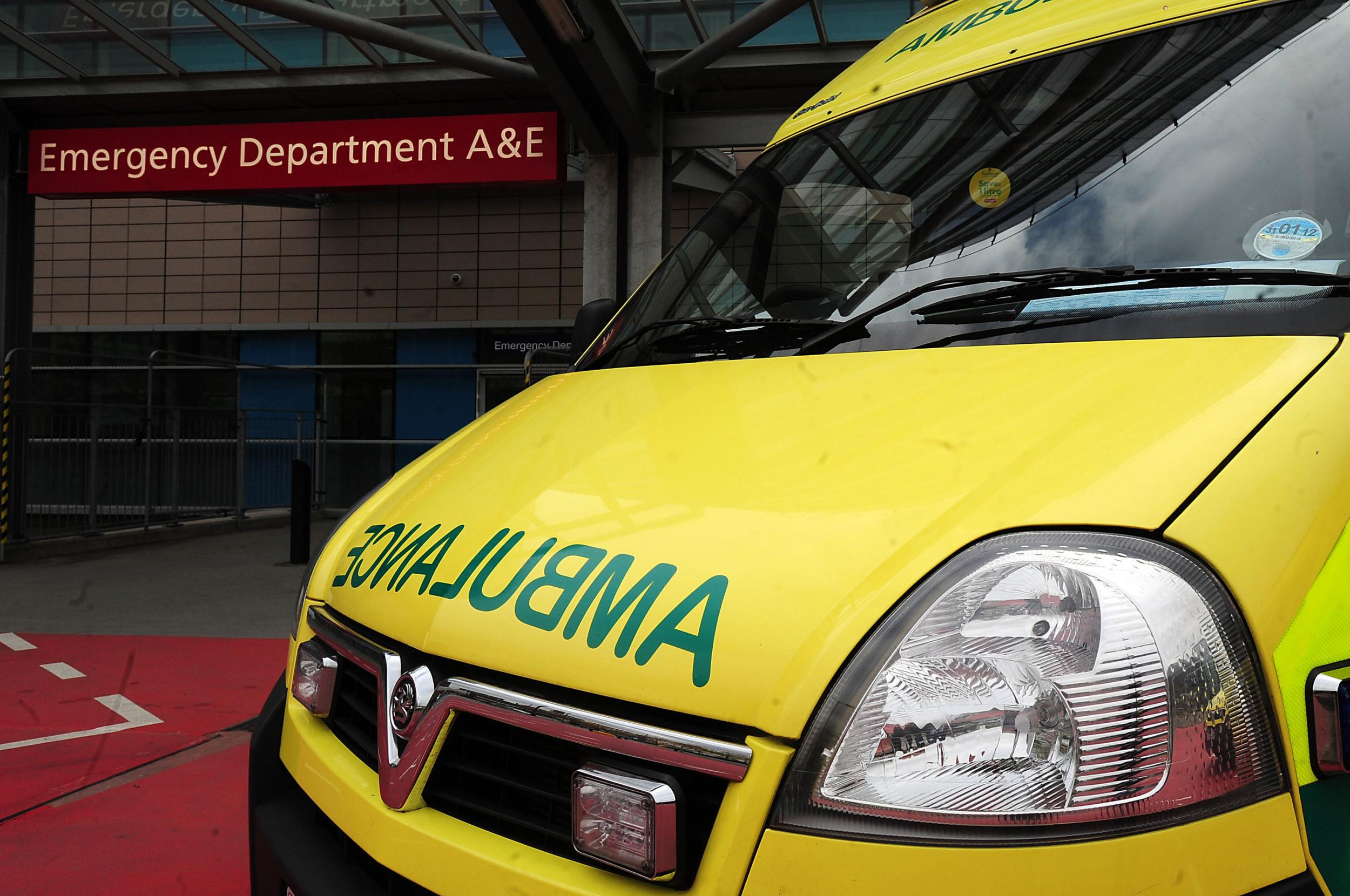Tens of thousands of operations to be cancelled as NHS braces for 'Christmas crisis'
Tens of thousands of operations to be put on hold to prepare for ‘surge’ of holiday illnesses

Your support helps us to tell the story
From reproductive rights to climate change to Big Tech, The Independent is on the ground when the story is developing. Whether it's investigating the financials of Elon Musk's pro-Trump PAC or producing our latest documentary, 'The A Word', which shines a light on the American women fighting for reproductive rights, we know how important it is to parse out the facts from the messaging.
At such a critical moment in US history, we need reporters on the ground. Your donation allows us to keep sending journalists to speak to both sides of the story.
The Independent is trusted by Americans across the entire political spectrum. And unlike many other quality news outlets, we choose not to lock Americans out of our reporting and analysis with paywalls. We believe quality journalism should be available to everyone, paid for by those who can afford it.
Your support makes all the difference.Hospitals have been told to cancel tens of thousands of non-emergency operations until the New Year as winter pressures keep ratcheting up and MPs warn the NHS is heading for a “Christmas crisis”.
The advice followed vaccination figures showing 40 per cent of frontline NHS staff in England are yet to have a flu jab despite being told they have a “professional responsibility” to protect themselves.
NHS England’s national emergency pressure panel (NEPP) said the health service should brace for the “surge” in patients at Christmas and New Year.
Parts of the NHS have already warned they were intending to restrict elective procedures, which include hip operations and cataract surgery, by introducing a minimum three-month wait this winter.
But the winter guidance now says all hospitals should push back non-urgent care.
A letter sent by the NEPP to hospital chiefs said: “The expectation is that non-urgent inpatient elective care should be deferred until mid-January to ensure beds and staff are available for the sickest patients.
“By acting early, trusts can avoid last-minute cancellations that can be costly and inconvenient for patients.”
They are also advised to convert routine follow-up appointments into seasonal hot clinics to manage a “surge” in winter respiratory conditions.
Cancer operations and procedures for patients with conditions that are likely to deteriorate should not be delayed.
NHS data shows there were more than 15 million first and follow-up attendances in the NHS between January and March 2017.
The mass cancellation of elective procedures at Christmas are intended to minimise disruption for patients.
But the data shows that in the first three months of 2017, 21,000 patients had their appointments cancelled on the day they were due to be operated on or after they arrived at hospital.
This follows data on seasonal flu showing eight deaths so far this year, and 23 patients in intensive care.
Figures on flu jab uptake, released by Public Health England, also show 400,000 NHS staff in England, 41 per cent of the nearly one million workers who have direct patient contact, are still at increased risk of winter flu.
Infectious disease experts said that low uptake could have “devastating effects” on nurse numbers and patients, though it is an improvement on the 44 per cent unvaccinated this time last year.
The NHS is already braced for a particularly “heavy outbreak” of flu this winter.
Australia and New Zealand experienced a heavy flu season meaning more pressure on hospital beds, and more staff staying off work to prevent the infection spreading to patients.
To counter this, NHS England launched a £10m campaign this autumn extending free vaccinations to care home staff.
It also wrote to all NHS doctors, nurses and health care workers reminding them of their “professional responsibility” to protect patients by ensuring they don’t get ill.
More staff and bed space are likely to be available in coming weeks because of the £335m allocated to the NHS for winter in the Autumn Budget.
But this investment falls well short of the £350m a week asked for by NHS England chief Simon Stevens.
Dr Neil Wigglesworth, president of the Infection Prevention Society (IPS), said: “With the added threat of the Australian flu strain reaching Europe, frontline nurses and their patients and colleagues are even more vulnerable.”
The Independent revealed this week that one fifth of NHS hospitals have run out of beds completely at least once in the first weeks of winter, and hospital representatives said it was clear flu was having an impact.
Director of policy and strategy at NHS Providers, Saffron Cordery, said: “The NHS has prepared for winter as never before, and now it is clear those plans are really being put to the test.
“It is likely that flu and recent cold weather is now beginning to bite.”
Liberal Democrat MP Norman Lamb, a health minister in the previous Coalition government, challenged Theresa May to agree to a cross-party effort to put the NHS on a sustainable footing this week.
“These shocking figures show the NHS is entering a Christmas crisis,” he said.
Jonathan Ashworth MP, Labour’s Shadow Health Secretary, said: “Theresa May’s claims that she has suitably prepared our NHS for the winter season are looking increasingly doubtful.
“Despite the best efforts of our overstretched staff, numerous trusts are already running at full capacity with no spare beds at all.”
National emergency pressure panel chair, Sir Bruce Keogh, said: “Given the scale of the challenge, hospitals should be planning for the surge that comes in the new year by freeing up beds and staff where they can to care for our sickest patients."
Join our commenting forum
Join thought-provoking conversations, follow other Independent readers and see their replies
Comments